
Episode 4
Fenway Recap on HRT Drugs for Transgender
In Episode 4, Erin recaps topics from a 3-day conference she attended called “Advancing Excellence in Transgender Health,” put on by the Fenway Institute in Boston. The conference was rich with the latest information on medications prescribed for Transgender Hormone Replacement Therapy. HRT drugs for transgender topics include Estradiol, Spironolactone, Casodex (Bicalutamide), and Prometrium.
Podcast: Play in new window | Download
Subscribe: RSS
About This Episode
Episode 4 Transcript
Fenway Recap on HRT Drugs for Transgender
Erin Everett, NP-C:
Hey everyone, and thanks again for tuning into Exclusively Inclusive. This is your host, Erin Everett. Just wanted to check in with you guys. Have a few things that I wanted to chat about, kind of more on a casual setting. I’m also really curious where everybody is listening from. I would love to know where everybody is tuning in from. I understand that this isn’t a necessarily live or in real time, but when you are listening and you hear this message, feel free to shoot me an email erin@exclusivelyinclusivepodcast.com let me know where you’re listening from. Let me know what’s on your mind, what kind of topics do you want included in future shows. That kind of stuff makes this podcast more relevant to the needs of the community and keeps everything going so people are still interested and getting what they need from me.
Currently in Atlanta, we’re under the cold snap and things are pretty Like for Atlantans this time of year we’re not really doing well with 30 degree temps that are going to plumb it into low 20s, so what better time than to sit down and connect with you guys, all my friends and listeners and give you some information? I’m always trying to better myself and recently I went to a conference up in Boston, Massachusetts. It was my first time in Boston, so not only was I excited to experience a new city, I was also very excited to go and attend this conference. It was held by the Fenway Institute. Fenway is well known amongst the community for having a massive gender clinic. They post a lot of guidelines on LGBTQ healthcare and transgender medicine in gender diverse communities, and so they’ve been holding this conference for a long time. This was the first year I was able to attend and it’s also run by the Harvard Medical School.
Not only was I stoked to go and see a new city, but I was so to be around like-minded people who had the same interests and the same goals, and that was to advance excellence in transgender medicine, which was actually the title of the conference. The National LGBTQ Health Education Center held the conference and it’s called Advancing Excellence in Transgender Health. The conference was three days, Friday, November 1st, 2nd, and then 3rd is when it kicked off was on a Friday. One of the things that I have to say and total credit to Fenway was that I thoroughly appreciated not only of course the topics, but two of the things that I found unique to this conference outside of Mazzoni, which is a different conference that I hope to go to next year and I’ll be able to update you on that, was that they use a lot of different terms that I was not familiar with, so again I was learning in that regard, and a lot of the speakers and attendees were part of the community.
They had a lot of gender diverse speakers. They held several panels where they brought in people from the community to talk about their experiences of their receiving healthcare, kind of their healthcare experience is in general, especially with transgender and gender diverse people of color, and also gender-affirming care they did or did not receive. But also like I said, some of the speakers who are educated and working in the field were also part of the community and considered themselves gender diverse. Either they were gender queer or gender nonconforming, non-binary, transgender, trans masculine, trans feminine, those types of things. I found that really refreshing cause of course I’m cisgendered and a strong ally, but sometimes I felt like these conferences is saturated with those speakers, which is not necessarily a bad thing, especially if you have the same goals that you just want to help the community, but it was definitely refreshing to hear from the community but also learn from them in a more appropriate platform.
One of the themes that was discussed and cause a lot of the different attendees were there, and while I’m very well experienced in this setting, some of the providers that showed up were not experienced and they were here for the first time learning how to provide better care to people who are gender diverse or part of the LGBTQ community. One of the common themes was that we should not be relying on our patients to be our teachers. Can we learn from our patients? 100%. but we should not be relying on them to teach us providers, healthcare professionals, anyone coming into contact and delivering care to this population should be doing the things that they need to do to educate themselves and learn along the way, but not make the patient responsible or feel responsible for their learning. That was something that I thought was super cool.
There were several health topics discussed. Actually, one of the ones that I was most surprised about that you don’t always see it in yourself and I guess part of the talk was addressing unconscious and implicit bias, and that was held by Cei Lambert. I found that discussion extremely interesting because someone like myself, who, unless I’m taking a time for self reflection, don’t really acknowledge my unconscious and implicit bias, but it’s there. It’s probably there less than other people who aren’t well-versed in the community, but it’s definitely there. He was able to give a great talk on how to constantly remind ourselves to make sure we’re not making assumptions about patients, creating a healthy safe place for patients to come in and receive care, and make sure that our own personal biases that we didn’t even acknowledge were impacting the healthcare needs of that population.
I guess one of the things there is, it’s always a constant reminder and it segued into, not in the conference, it wasn’t set up this way, but in my mind it segues into taking a proper health history for transgender people and making sure that we’re not using things like biological female, biological male. We need to be asking patients when we’re taking health history, like, “Are you having sex with someone who has a penis or vagina?” Because at the end of the day we’re trying to make the system more non-binary. And so, I found it very enriching.
Julie Thompson, who is actually from Fenway and practices for Fenway Medical Center, is a Physician’s Assistant, and she was fierce. Listening to her discussion on gender affirming hormone therapy was just amazing. We do things a little bit differently and that’s okay, that’s part of the reason why we get together to these conferences. She was extremely knowledgeable and not only was she delivering great care, but the way that she could break it down into a scientific level of why she’s making the decisions that she’s making was just mind blowing. It sometimes feels like it’s hard to come by. I’m very lucky that I have several colleagues like that, but sometimes it’s hard to come by, especially with this population, to find people who are so well educated, knowledgeable, and not only that, can translate it into a way that a lay person can understand and that she can connect with her patients. That was extremely refreshing listening to her take on gender affirming hormone therapy.
Some of the things that she was able to address for me that I took away from was that when we’re doing informed consent, both for feminizing and masculinizing hormone replacement therapy, one of the things that we go over is the risk of liver damage and liver toxicity. I constantly have patients coming to me saying that, “Well, I want to get on injectable estrogen or take my estrogen sublingually because I’m worried about my liver.” I told them in the five years that I’ve been doing this, I’ve never had anybody have to come off of hormones because of liver damage, and usually if there’s something going on with the liver is not related to hormones, but I hadn’t always had a lot of data to back it up. It was all anecdotal or experience-based. One of the things that Julie was able to do, and she’s a MythBuster just like me, was reassure that Fenway had found data and was letting us know that there’s actually been no reported link between estrogen or testosterone causing liver toxicity. This is huge. This is great. I want to say it’s huge.
It’s not like we were withholding medications for this, but that was like a strong fear for a lot of patients and a lot of providers. As a provider, I come across patients who are seeking hormones and they may already have underlying fatty liver disease, which is causing distress on their liver. But to know that for the most part that these hormones, we’re not putting extra stress on their liver is reassuring as a provider, because I want to be able to provide gender-affirming care. I want to give people the hormones that they need and that they require that are medically necessary. But when you look at the whole person and not just the person as their gender, and not just affirming their gender, you have to consider these other issues that may or may not be occurring. It really just takes the heat off of me when it comes to worrying about their liver.
And the patients too, because now I can fully reassure patients, “Hey, don’t worry about taking the estrogen sublingually.” It’s not designed to be taken that way, so it doesn’t dissolve very easily. There’s patients walk around with these estrogen under their tongue for a long time. I mean, I’ve had patients say it doesn’t taste bad, but I can’t imagine how it doesn’t. It’s a pill that’s not designed to be under the tongue, so it’s going to have some sort of taste. When you’re taking a multiple times a day, that’s cumbersome, so then you run into issues with medication adherence. Rest assured, folks. Unless your provider has a different reason to be concerned about your liver, please don’t stress that your hormones are destroying your liver, because they’re just not, they’re just not. It’s very safe.
The risk that she did mention with estrogen, which I’m well versed in and I do talk to my patients about, was increased risk of venous thrombus embolism. Some of the risks that she talked about that I do talk about with my patients would be venous thrombus embolism. Basically that means for you a blood clot that can occur in the leg, it could occur in the lungs, and the heart, and the brain. While the risk is there, the data has shown that actually the type of estradiol that we are giving is less harmful than the estradiol found in oral contraceptives taken by cis women preventing pregnancy. Let me say that one more time, because I found this huge. The estradiol that we are giving for gender-affirming care, for hormone replacement therapy, is safer than what’s found in oral contraceptives when it comes to the risk of blood clot.
This is amazing, because that’s something that we always stress. You know, I always tell my patients if you’re going on a long flight you need to make sure you getting up every two hours, which disclaimer, everyone should do that anyway. If you’re going on a long road trip, make sure you stopping, even consider baby aspirin if you were like flying to Asia or something that’s like a 20-something hour flight. Those might be good practices to do and you may want to do them anyways to prevent a blood clot when you’re traveling for an extensive period of time, however you don’t to feel compelled to do it because of your estradiol because the risk of blood clot is lower with the estradiol that we are prescribing for hormone replacement therapy then the estradiol that is found in oral contraceptives that cis women are taking. That was pretty amazing. One of the other things that gets reported a lot is risk of metabolic syndrome, which basically means for the patient an increase in cholesterol, an increased risk of diabetes, increased risk of fat around the waist or what we call abdominal obesity.
The conference was able to inform me that that’s actually not a true risk. That in fact, estradiol increases the HDL cholesterol, which is considered your good cholesterol, high-density lipoprotein. That cholesterol is considered protective against heart disease. It does mildly increased triglycerides, but we’re not 100% sure of the role of triglycerides in heart disease. We do know that triglycerides love to deposit on the liver and the pancreas. However, triglycerides for the most part, are pretty responsive to diet and exercise. So if people have an issue with their triglyceride levels, engaging in a low fat diet, a diet low in a simple carbs, sugars, things like that, can positively impact the triglyceride panel, and so it’s not necessarily getting on estrogen is going to make you have a hyperlipidemia or high cholesterol. That was reassuring, too.
The other thing that was discussed that I found extremely interesting, let me flip here to my notes because I did make a lot of notes from the conference, was not only, again, was testosterone found not to negatively impactful liver, but again, we’ve been telling patients for a long time that increases the risk of metabolic syndrome when it also found that to not be true. Testosterone does not increase your risk of diabetes. One more time. Testosterone has been found, according to Fenway, not to increase your risk of diabetes. Again, this is huge.
Because a lot of people have a family history and are concerned about it when coming in and wanting to start hormones. It’s really reassuring that their data found that it does not increase the risk of diabetes. Now, the only reason, not the only reason, but one of the main reasons why people worry about testosterone when it comes to high blood pressure is that it can actually increase the amount of red blood cells that your body makes. Testosterone works in a hormone from your kidneys called erythropoietin. Erythropoietin basically tells your bones to crank out more red blood cells. That’s not the only reason why, but one of the main reasons why a transgendered individual on testosterone would experience increased levels of red blood cells. That, in general, it’s the same reason why sometimes pregnant women have high blood pressure when they’re pregnant, because we’re talking about blood volume here.
So when somebody gets pregnant and carries a fetus, automatically their blood volume increases so that they have enough blood to circulate and supply oxygen to the fetus. Well, while that’s not occurring during hormone replacement therapy, potentially you are increasing the blood volume based on the amount of red blood cells you’re producing. That means that your blood pressure may increase. Now for the amount of time that I’ve been doing this, I have not really identified any one patient that I could say 100% that their high blood pressure was coming from their testosterone. This is important to note, because even when we’re looking at the complete blood count and we see that the red blood cell are increasing, what we see is that someone who had levels before starting Testosterone in the cis female range is now going to go up to having levels in a cis male range, and that’s okay because it’s expected.
That’s awesome, because that means that to salsa and is no longer harming your liver. Not no longer, it never was, but now we know that it’s not. It’s not increasing your risk for diabetes and it’s not necessarily increasing your risk for hypertension or high blood pressure, unless there’s other things going on. It’s okay for the red blood cells to go up to that of a cis male range when you start testosterone. The reverse is also true. I have a lot of patients coming in concerned about their new onset anemia because they’re now on feminizing hormones and another provider has told them you’re anemic and you need to work up. That’s not true. You’re reducing the testosterone, so that means for someone who has been assigned male at birth but is now on female hormones, you are going to be cranking out less red blood cells because you have less testosterone telling your kidneys and bones to do so.
Your red blood cells and your hemoglobin and hematocrit, the two numbers that we watch for that, I go into drop down to that of a cis female range. And that’s okay, too. We don’t need to send you over to GI and do a full workup unless you’re bleeding or have other things going on. But there is this thing that we notice where the red blood cell counts drop a little bit and it’s totally fine. It’s totally benign, it’s related to the hormones, and it’s absolutely of no concern. This was all things that I’ve talked about with my patients that I’ve seen in my experience, but to be able to go to this conference that’s held by the Harvard Medical School and have these like brilliant people present on it and just confirm what I’m seeing was amazing, because now I know even more that I’m delivering safe care to my patients.
One of the not so great things about trans gender medicine, but it’s getting better, is that a lot of it is trial and error and I have a lot of patients when we’re playing around with their hormones as far as if they’re non-binary or gender fluid, and they just want low dose, they ask me questions like, “Well, what will happen if I do it this way, or if I take low dose and then I take high dose or I stopped for three months?” I’m like, “Well we don’t know. Let’s just try it. It’s not going to hurt you. I just don’t know what changes you will experience.” Because again, this hasn’t been heavily researched. It hasn’t been heavily researched for people wanting to obtain a full transition. So yeah, it’s been even less researched for non-binary folks. You know, we’re experimenting together. But I do assure them and reassure them that it’s okay. You’re not going to hurt yourself. We just don’t know what kind of outcomes you’re going to have as far as physical changes. Hearing this information was really great.
One of the other things that was addressed that I’ve run into with my patients, and I have prescribed this before, was talking about vaginal atrophy related to a testosterone therapy. The vagina is very much dependent on estrogen to maintain its muscle tone, to help hold the bladder in the uterus where it’s supposed to be, and also very rely on estrogen for normal vaginal secretions, so without estrogen, you might have more painful intercourse. You might start leaking urine more, and just in general lose tone down there. I have prescribed for my patients topical Estrace cream, which is just a very light topical estrogen cream. You actually apply it to the vaginal area. You’re not going to get a lot of estrogen like overall, like systemically in your bloodstream, but it’s going to help nurture that vaginal tissue so that it can maintain its muscle tone, strength, relieve urinary incontinence, make sex more enjoyable because you’ll actually be able to secrete naturally without relying on lubricants.
But even when lubricants are in place, sometimes if you have poor vaginal tone, you will have painful intercourse because the muscles just aren’t as strong as they used to be, and so it can cause discomfort and additional spasms. One thing that Fenway did support was the use of those Estrace creams to help with that issue. I’ll be prescribing that even more for my patients, and especially with more confidence, too.
There was a lot of things discussed and it was just a very exciting conference in general. Some of the panels talked about people’s experiencing receiving care, which just really affirmed my need to be doing this podcast.
Hearing some of the horror stories that people who are gender diverse, whether they’re trans male, trans female, intersex, non-binary, gender fluid, hearing people’s experiences receiving care, whether it was from their experience sitting in the waiting area and dealing with administrative staff, the amount of providers they’ve went through and had to cycle through just so that someone wouldn’t take away their hormones. They show up to a GI that had some abdominal pain. They say, “Oh, it’s your hormones.” Take away the hormones. They go to a primary care provider and they’re like, “It doesn’t make sense that you’re on this dose. Let’s reduce it.” Because you know, the provider may not know how to interpret lab data or understand much about transgender medicine. Hearing these stories, I just, “Oh.” It was everything I could do to raise my hand and be like, “Just come see me in Atlanta.”
Because it’s horrifying and I think a lot of cis people who are heteronormative really take it for granted the fact that they can just walk up into a clinic and their sexual health needs will be addressed and they won’t have to constantly defend their need for their medications. That’s part of the reason why I’m doing this podcast. I don’t know if other providers are listening. I hope they are. But if they’re not, I’m at least arming the patients with information so they know what’s okay and what’s not okay. Again, I don’t want to burden patients with teaching providers, but at least if you’re armed with the information, and the knowledge, and the tools, you’ll know when a provider tries to take away your hormones, what’s real and what’s not. You’ll know when a provider tells you, “Oh, you’re in to too high of a dose,” you’ll know what’s real and what’s not, and so you can at least advocate for yourself a little bit better, even if you don’t want to take on the burden of educating the provider, which I totally understand.
I totally understand, because I don’t want to have to go and see my primary healthcare provider and teach her everything just so she can treat me. That’s, in all honesty, kind of a conflict of interest. If I go to my primary healthcare provider and I’m like, “I have a urinary tract infection,” and they’re like, “Well, I don’t really understand how to treat that.” And I’m like, “Okay, well you got to get a UA. I want you to send it for a culture and go ahead and give me Macrobid until you get the culture back. Then if you get the culture back, feel free to switch me to Cipro.” Well, why am I even there? You know? I should be able to go into an office and just have my needs met. I’m really hoping that this podcast is able to reach people so we can all get more informed on the same page and normalize hormone replacement therapy, LGBTQ care, so the people aren’t feeling left out, feeling disappointed with their healthcare when they go to receive it.
I mean, there was some pretty terrible stories and I really was just floored at the courage that that panel had to sit up there and tell they’re such intimate details of their lives and the disparities in health care that they’ve received. And so if any one of them is listening, I want to thank you again for your time. I thank some of you in person that I could actually reach and talk to and connect with at the conference, but I want to thank you all again because it is no easy task to sit up there in front of a group of strangers, and it wasn’t a small group, there was a lot of us there, and tell these scary stories and relive them. So hats off to you all and thank you so much for the work that you’re doing for the community.
One of the more infamous questions I get from trans females and people taking feminizing hormones is about spironolactone, a most classic, almost famous androgen blocker. Well, it gets a bad rep. It has a lot of side effects that people don’t love. However, I do remind my patients a majority of those side effects do occur because of dehydration. Spironalactone is a diuretic. It’s going to make you urinate more. And when you’re urinating more, than you’re taking in. You will experience things like fatigue, dizziness, dry mouth, stomach upset, muscle weakness, cramping, all those things. Again too, when your testosterone levels are dropping, you’re going to experience fatigue. That is hard to say whether it was directly coming from the spiro or a side effect of a decreased testosterone level.
I often get asked about Casodex, or Bicalutamide, which is the other one, the other name for it, sorry, the generic name. It’s prescribed in other countries. It’s more famously known for its work against prostate cancer. When I say that, I mean it’s usually prescribed for patients who’ve had prostate cancer to suppress the testosterone to prevent the prostate cancer from recurring. Of course, a lot of those medicines that block testosterone then have been experimented with blocking testosterone in gender diverse populations. However, it comes with this nasty side effect, which I have not prescribed this medication before for this very reason. One of the things that I set out on a mission for when I got to Fenway was to find out if I could start prescribing this or not. The answer is no, unfortunately, for my patients. The risk of liver toxicity, or as us in the field called hepatic toxicity, is just too large. There is just too much data supporting sudden liver failure and irreversible liver damage related to this drug.
Now people then say, “Well, how come people who’ve had prostate cancer can take it?” Well, it’s risk versus benefit. When it’s the risk of cancer coming back and consuming their body and metastasizing versus the risk of liver damage and liver failure, they take the risk of liver damage and liver failure in order to optimize their life and longevity. But when it comes to hormone replacement therapy and we have a safer option, albeit maybe more uncomfortable option because of side effects, but I can sleep well at night knowing that my patients aren’t going to have spontaneous liver failure or irreversible liver damage. We’re going to go with that one. Like, we’re going to continue to prescribe spironolactone. But what I also reassure my patients is even though spiro has this nasty side effects, you don’t have to stay on it forever.
When you’ve been on estrogen long enough, estrogen also works to block androgens, especially if we can get the estrogen level higher than the testosterone, which is the goal of therapy. We use spiro to help us to do that initially because it’s really hard to get estrogen higher than testosterone without doing that, because you need something blocking it. But once the estrogen levels get high enough, it actually interferes with the luteinizing hormone in the loop feedback from the pituitary gland. What that means for you is basically estrogen gets high enough, it tells your pituitary gland, which controls your hormones. “Hey, stop making testosterone. I’m here and I’m going to stay here, so you just might as well as wave the white flag and stop producing testosterone.” So it does. And so once we get the sustained levels of estrogen up high enough for long enough, I slowly start to wean my patients back on the spiro.
The goal for me personally is to get my testosterone levels, my patients, I should say, testosterone levels less than 70. Fenway, Julie Thompson, she has a goal of less than 55. To me it’s like splitting hairs. Cis females could have a range up to 70, so you know, it’s neither here nor there, but we have similar goals. Getting the testosterone down below that will allow the estrogen to get up above 100. I like it about 100 to 150 ideally. However, the top of my range is about 400. Now when you’re talking about testing it when you’ve had injectables that’s a little bit more tricky and we’ll get into that another day. But basically, once you’ve achieved those levels and you’ve maintained them for several months, you can start to curtail on your spiro, and you’ll notice that the testosterone does not come up because the estrogen is staying nice and high and telling the pituitary gland to stop manufacturing testosterone.
I always raised from my patients, “Yes, you’re going to be on this higher dose spiro for a little while, but eventually one day we’re going to wean it back.” Depending on the person, depending on the patient, that might be at six months, 12 months, 18 months, 24 months. I cannot guarantee it. I do not control your body. I just control hormones, or at least that try to. What your buddy does with it is going to be up to you. If people can really not tolerate spiro, I’ll reduce the dose a little bit and add Finasteride, which is also more famously known for its efforts in reducing prostate size in cis males.
It doesn’t directly block testosterone. It stops it from converting to DHT. So you sometimes don’t see an immediate drop in the total testosterone levels, but eventually you will, and you’ll also see that it allows your estrogen levels to get higher, so there’s other options out there for people who really have a hard time tolerating spiro. But unfortunately as it remains for me in my practice, Casodex or Bicalutamide is not an option. I will not be prescribing it. If someone came to me on it, I would very strongly urge them to switch over. But Fenway is not endorsing it, USCF Transgender Center for Excellence is not endorsing it, and therefore I’m not endorsing it. At the end of the day, I want everyone to have a happy, safe, and healthy transition.
They also talked about progesterones. Prometrium is the most recommended form of progesterone, which is what I prescribed for my patients. I usually prescribe it 100 milligrams at night anecdotally, which means I don’t have a lot of scientific data where they set up the clinical trials, but I have enough patients on a reporting that it does help with breast development, lobular breast growth, which means it helps the breast become more fatty. And it helps with fat redistribution. It can help replace some of that libido that’s lost when you drop your testosterone levels.
Anecdotally, again, it can also help with painful erections. Sometimes when the testosterone level is low, introducing Prometrium can help reduce that pain. It doesn’t for everybody, but it does for a lot of people. But we have to be weary because if somebody is already well overweight or struggling with weight issues and health issues related to their weight, progesterones can increase weight, so we do have to be cognizant of that. It’s not that we won’t prescribe it, but we has to be adapted with a healthy lifestyle. It can also increase the rate of depression. That’s not something that we obviously want.
Things that the conference touched on was mental health issues in this population. The last thing we want to do is exacerbate those mental health issues. We want to fix them. I always tell my patients, “Listen, give it a world. Try it. If you experience increased rates of depression, then go ahead and stop it. It’s not a key player in the feminization process. You’re not going to not feminize if you’re not on it. It just might help you out a little bit. But once we find out it’s not helping and it’s actually hurting, it’s time to take it away, because again, it’s risk versus benefit, and if you’re getting a lot more risks than you are a benefit, then we don’t need that drug on board.”
That pretty much was the main highlights when it comes to hormones that was discussed at the conference. There was a lot of other topics discuss that we’ll have to touch on at other times. Some of the things that they talked about was surgeries, which we’re going to have a whole segment on surgeries at some point, and hopefully get some people on who have experienced surgery and what their experience was like.
Also, cultivating resilience and wellness and physical therapy and gender affirmation, so basically getting people pelvic floor exercises pre and post surgery to help with some of the dysphoria and discomfort associated with those organs. reproductive options, there’s a lot of reproductive options for transgender persons, so hopefully we’ll be able to touch more on that in more depth later.
In future episodes, we will be having other specialists on and I will be having a mental health care provider, Tali Boots come on and discuss some more of the intimate details when it comes to sex pre and post hormones, pre and post surgery, navigating a nontraditional relationship, exploring other types of sex, especially if somebody has a lot of dysphoria surrounding their genitals, ways around that so you can still derive sexual pleasure from your new body.
I’m really excited about the upcoming topics, but I still really am urging my listeners to reach out to me and let me know what kind of topics do you want to hear about. Please email me at erin@exclusivelyinclusivepodcast.com. I really want to hear what’s on your mind, what do want to hear about? I could talk forever about a bunch of different things, but if it’s not what you want to hear about them, what’s the point?
Remember, live your best life. Live your truth. Stay happy, stay healthy. And until next time, thanks for listening.
During episode four of Exclusively Inclusive with Erin Everett, NP-C, your host gives a recap of a continuing education conference she attended in Boston held by the Fenway Institute called Advancing Excellence in Transgender Health.
During the 3-day conference (November 1-3, 2019), Erin listened to speakers from not just the Fenway Institute but also gender diverse community members who shared talks on implicit bias, as well as discussed their own (sometimes horrifying) experiences with receiving healthcare.
Highlights of Episode 4 include critically important information presented by Fenway Institute staff on HRT drugs for transgender medicine and new findings regarding the impact of these medicines on patients. Important topics Erin discusses that you absolutely must hear include:
- Hormone therapy and liver toxicity
- Estradiol and blood clots and cholesterol
- Testosterone and diabetes, high blood pressure, and kidney damage
- Testosterone and vaginal atrophy and the use of Estrace cream
- Sprionolactone side effects
- Casodex (Bicalutamide) and liver toxicity
- Prometrium (Progesterone) and breast development and libido



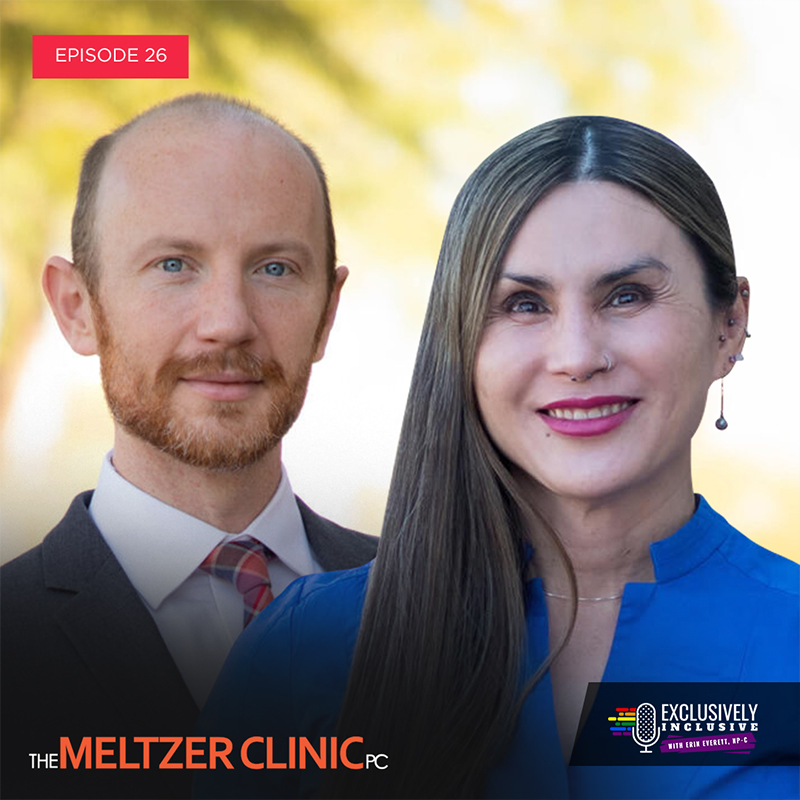

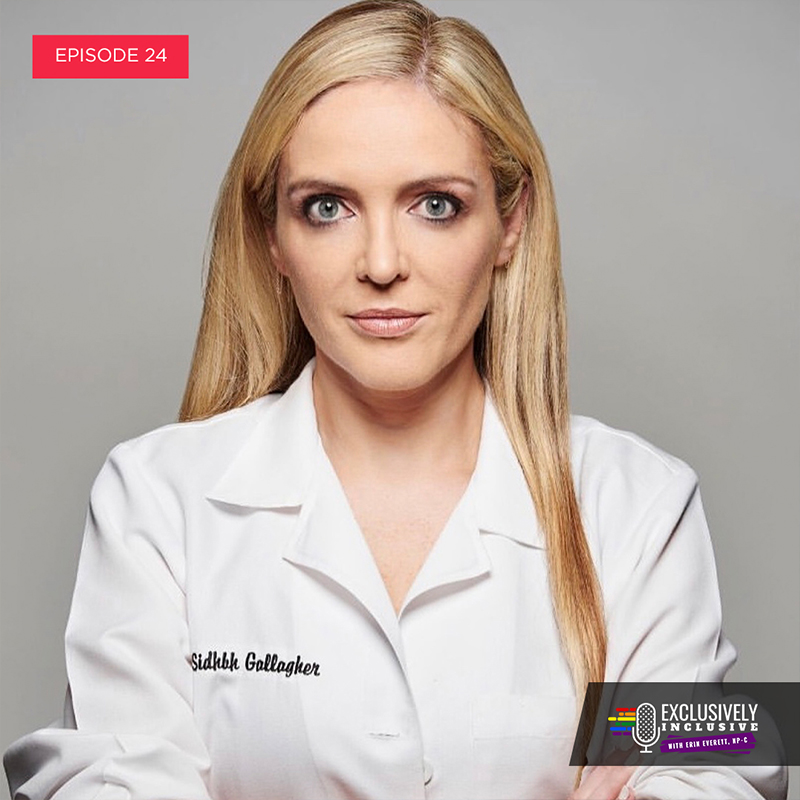



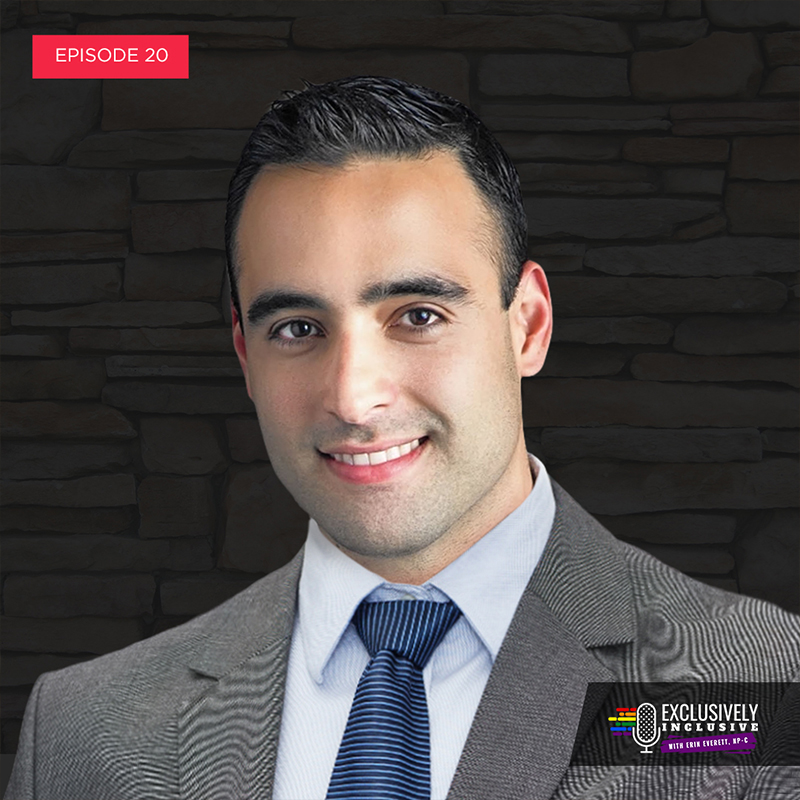


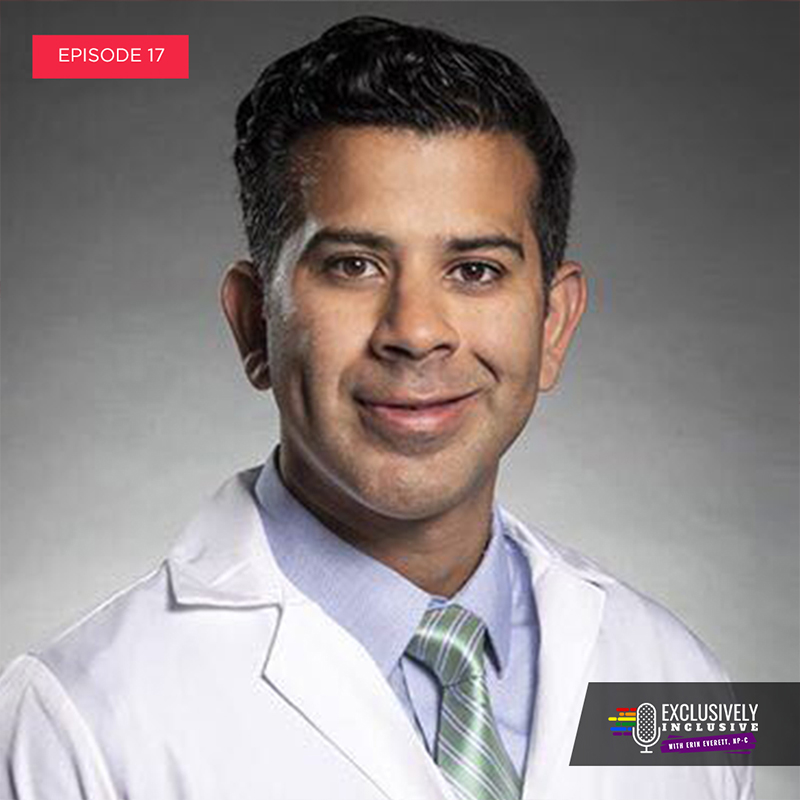


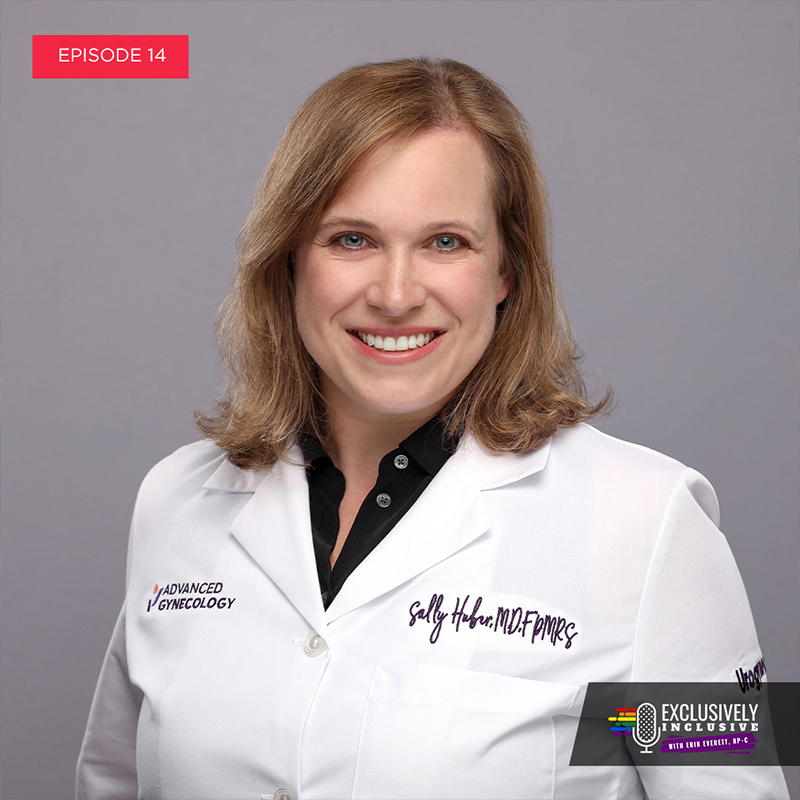




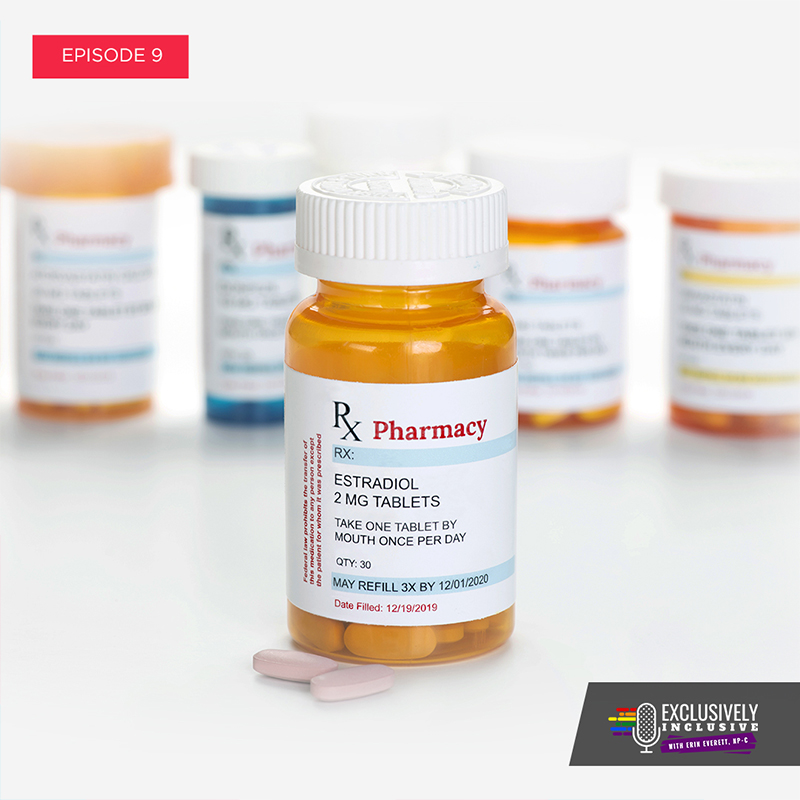







Thank you.
I hope that I can change. : )